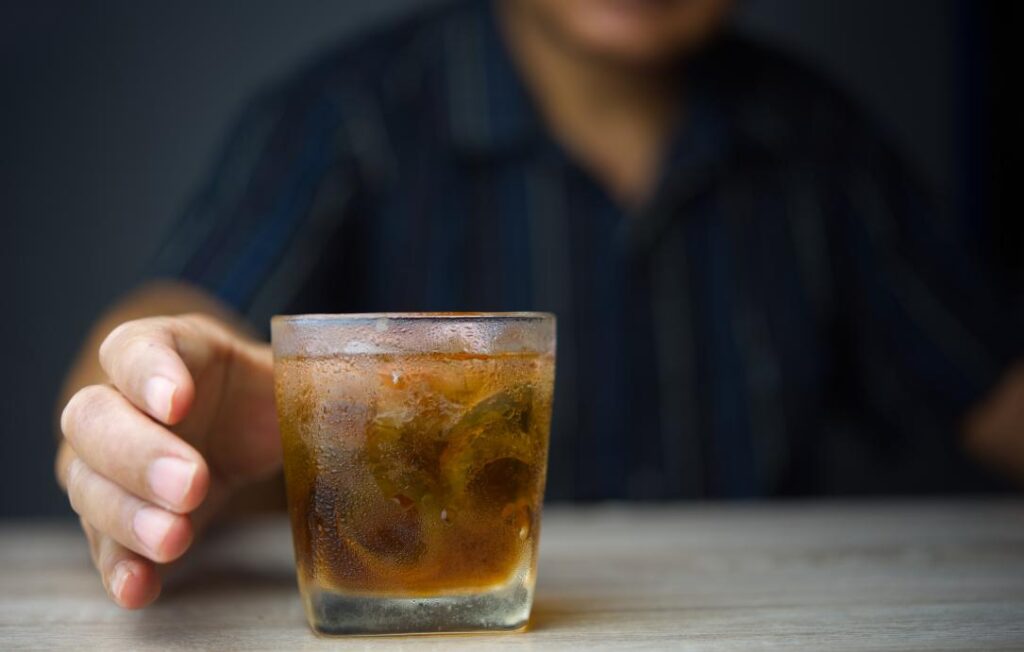
When a person starts consuming alcohol more frequently than necessary, the substances from the alcohol can alter the chemical makeup of his brain, leading him to form an alcohol dependency, or in other terms, alcohol abuse.
There are different reasons why a person engages in long-term alcohol abuse. It may be their way to self-medicate, relieve stress, or escape and forget their real-life problems.
Unfortunately, alcohol abuse can damage your physical and mental health, and ruin your relationships and overall quality of life.
What Is Alcohol Withdrawal?
On a good note, alcohol addiction is treatable, and the first step toward recovery is to quit drinking it. However, choosing to be sober also comes with its challenges.
If drinking alcohol has been part of your lifestyle and you stop it one day, you’re more likely to experience mental and physical problems, commonly known as alcohol withdrawal.
Symptoms of alcohol withdrawal may range from mild to severe problems. Mild symptoms may include:
- Heavy sweating
- Shaky hands
- Headache
- Vomiting
- Insomnia
Meanwhile, extreme symptoms may include hallucinations, fever, delusions, and seizures. Due to these withdrawal symptoms, some people quickly relapse and go back to drinking to avoid going through alcohol withdrawal again.
How To Survive Alcohol Withdrawal?
Thankfully, there are a few things you can do to help you cope with alcohol withdrawal and prevent going into relapse. Here are eight tips to help you survive alcohol withdrawal and be on your way to a successful recovery from alcohol addiction.
1. Seek Help From An Alcohol Rehab Center
The first step towards surviving alcohol withdrawal is seeking help from a reputable rehab center like Kemah Palms Rehab or other rehab centers near your area. If you are located within the London area specifically, you can seek professional alcohol addiction help at an alcohol rehab in London.
When you’re in an alcohol rehab center, healthcare professionals will guide you through alcohol detox through regular therapy, counseling, and medications. Furthermore, they’ll also help you deal with any triggers and monitor your withdrawal symptoms closely.
So, if the fear of the alcohol withdrawal symptoms hinders you from quitting, don’t be. You don’t have to deal with the symptoms alone. The professionals from the rehab center will make sure you get the help you need every step of the way.
2. Find Support From Family And Friends
One common mistake many recovering alcoholics make when trying to be sober is choosing to be alone and isolated. However, the more you resort to isolation, the more the alcohol withdrawal symptoms will take a toll on you, boosting your chances of relapse.
Thus, when you decide to be sober and go through alcohol detox, make sure you find support from your family or friends.
Your supportive friends and family members can help you survive alcohol withdrawal in so many ways. They can provide comfort when you’re feeling confused, and they’ll also ensure you’re not exposed to any triggers.
3. Drink More Electrolytes
People often suffer from nausea and dehydration during alcohol withdrawal. To fight this off, drink more fluids rich in electrolytes.
These beverages may include sports drinks, coconut water, smoothies, or electrolyte-infused water. The electrolytes found in these drinks will ensure your body is well-hydrated and prevent you from feeling nauseous.
4. Take Cold Showers
If you’re feeling strong urges to relapse, bring yourself to the bathroom and take a cold shower. It will save you from hot flashes, reset your body, and distract your mind from other things.
Furthermore, cold showers will also slow down your withdrawal thoughts and promote relaxation.
5. Eat More Fruits And Veggies
Eating a balanced diet plays a vital role in healing your body and mind. Eating healthy and nutritious meals will help restore your brain health and improve other body functions. Keep in mind that alcohol has damaged your body in so many ways.
Furthermore, the presence of alcohol in your body has also caused an imbalance in your body’s sugar levels. Eating more fruits and vegetables will help rebalance your sugar levels.
There are also other benefits of eating a balanced diet and consuming more fruits and vegetables, such as reducing your alcohol cravings, boosting your self-image, promoting self-care, and improving your moods and overall wellness.
6. Cut Yourself Off From Alcohol Enablers

If there are people against your road to alcohol recovery, it would be your drinking buddies. It is true, especially if they were the people who made you become an alcoholic in the first place.
If you’re serious about surviving alcohol withdrawal and quitting alcohol for life, you need to cut yourself off from them. Instead, circle yourself with new friends or people who fully support your choice to be sober.
7. Exercise Regularly
Even if you don’t feel like exercising when experiencing withdrawal symptoms, bring yourself to step outdoors for a short walk.
Any physical activity is enough to encourage your brain to release endorphins responsible for your feel-good feelings and cope with withdrawal.
Once you feel stronger and better at exercising, you can upgrade your walking into jogging, biking, or hiking. Soon, you’ll feel more confident about yourself and the success of your alcohol recovery.
8. Practice Breathing Techniques
Breathing techniques are not only effective for calming you down or reducing your stress levels. Deep breathing will also stimulate your brain’s prefrontal cortex which handles reasoning and critical thinking.
So, whenever the symptoms of alcohol withdrawal kick in and you start to crave alcohol again, take a deep breath and do it repetitively until your mind can find its reasoning to ignore your cravings.
Surviving Alcohol Withdrawal
Being sober and dealing with alcohol withdrawal symptoms will never be easy or comfortable, but that doesn’t mean it’s impossible. So, if you’ve chosen to quit alcohol and deal with the symptoms, congratulate yourself and be proud of taking that brave step.
When withdrawal symptoms bother you, make sure to practice one or more of these tips. And whenever pain presents itself, remember that it’s only temporary it’s part of the recovery process.
